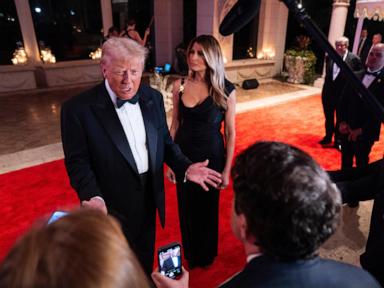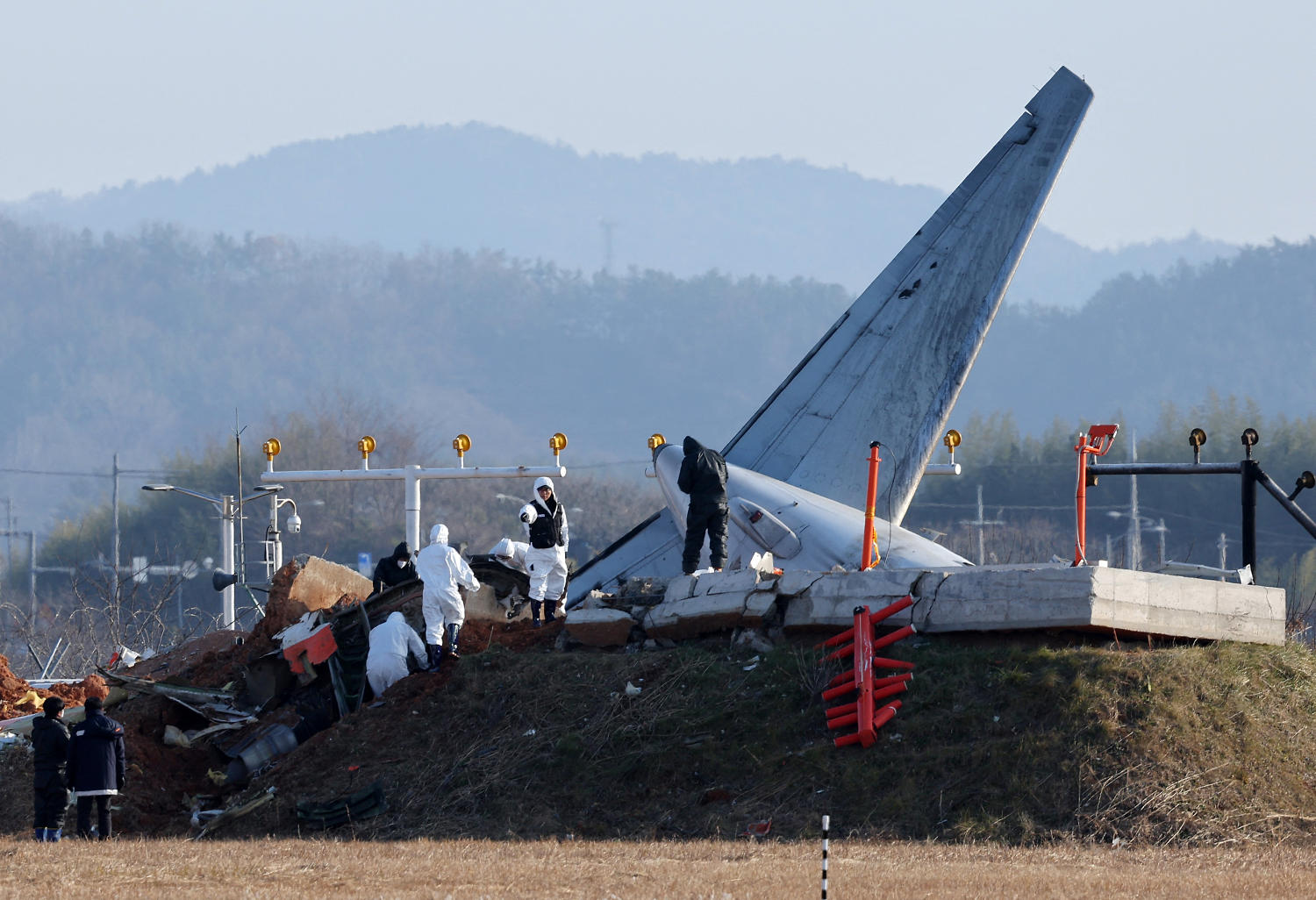A rallying call for democracy in South Korea

South Korean President Yoon Suk Yeol declared martial law on Dec. 3 for the first time in 44 years. As shocking as the incident was, Yoon’s ruling People Power Party (PPP) initially responded by refusing to impeach the president. Instead, conservative lawmakers prioritized party loyalty over accountability, and the impeachment vote failed to achieve a quorum on Dec. 7.
The scene echoed attempts to impeach Donald Trump in 2019 for abuse of power and in 2021 for inciting an insurrection. While Republican lawmakers were privately horrified by Trump’s actions, ultimately, they feared the repercussions for defying their party. Recent signs of democratic backsliding have caused scholars to question whether the institutional separation of powers continues to function today in an increasingly polarized world, where lawmakers prioritize party loyalty over their constituents.
The past month in South Korea, however, offers a unique glimpse into how ordinary citizens can reclaim political power. After the first attempt to impeach Yoon failed, citizens were outraged. Newspapers published profile pictures and contact information of PPP legislators who boycotted the vote, while protestors badgered them with phone calls and letters, decrying the party’s moral bankruptcy.
Students posted statements online and at their universities, pleading with PPP legislators to choose their conscience over their party. Civic organizations erected rows of chrysanthemum wreaths symbolizing the “death” of the PPP’s legitimacy outside party members’ district offices.
Unable to withstand unrelenting public pressure, all PPP legislators showed up for the second impeachment vote on Dec. 14, with a handful of members turning against Yoon. More recently, on Dec. 27, 192 lawmakers successfully voted to impeach Prime Minister Han Duck Soo, less than two weeks after Yoon was stripped of his powers.
What has fueled such sustained collective resistance in South Korea?
Yoon’s attempted self-coup clearly struck a nerve in the public psyche. When he declared martial law, his approval rating had already dropped to below 20 percent — the lowest during his tenure. Many saw his move as the last straw for an already frustrated public.
Even before December, a growing coalition of civic organizations had gathered regularly in the streets of Seoul, calling for his impeachment. Others pointed to South Korea’s robust history of collective mobilization, such as the successful campaign to oust former President Park Geun Hye in 2016.
On the one hand, the recent collective action against Yoon certainly did not occur in a vacuum, nor was it an aberration in South Korea’s long history of social movements. Few Western media outlets, however, have highlighted how a deeper history of national trauma during democratization continues to drive public outrage.
For many, images of armed troops blocking the National Assembly and special forces moving in the darkened streets echo the tragedies of the past: the 1980 Gwangju Uprising, the April 3 Jeju massacre, and countless other brutal episodes of state-led repression in the past century. South Korean history is stained with the blood of students, workers and ordinary citizens who dared to demand fundamental rights and democratic governance. Even decades after the formal transition to democracy, memorials, anniversaries and cultural works — films, literature and music — keep these scars fresh.
When Yoon deployed soldiers and claimed the nation faced a threat from “anti-state forces,” the language and spectacle were hauntingly familiar. In a cruel historical echo, Yoon’s martial law decree and the initial failed impeachment vote overlapped with the anniversary of Chun Doo Hwan’s declaration of martial law in 1979.
Citizens filled the streets and social media with reminders of past atrocities, stressing how historical injustices still resonate. A coalition of 802 sociologists emphasized the severity of the moment, stating, “Yoon Suk Yeol’s declaration of martial law serves as a stark reminder of the historical wounds of oppression, violence, suppression and fear that many citizens endured under past military dictatorships.”
Even those born after authoritarian rule have vicariously experienced the brutality of Chun Doo Hwan’s military crackdown in Gwangju through films like “A Taxi Driver” and ”12.12: The Day.” South Korean youth understand that democracy is no given gift but a fragile inheritance of hard-won freedoms, with one student group stating that “democracy in this land was built on countless lives.”
Referencing historic flashpoints in Busan, Masan and Gwangju, students noted that “during the six hours [of] martial law, the bitter, unresolved tragedies of this land resurfaced.” Another student collective voiced disbelief and alarm, asking, “Is this the 1980s? Is this happening in 2024?”
Collective trauma acts as a powerful emotional backdrop, transforming a single incident into a moral crossroads that not only threatens social order but also generations of political progress. South Koreans today are not merely protesting a government decree. Rather, they are responding to a fervent rallying call to defend the soul of their nation and reaffirm a collective identity forged through past suffering and unyielding resistance. In South Korea, citizens, not politicians, have held the president accountable.
Sharon Yoon is Associate Professor of Korean Studies at the Keough School of Global Affairs at the University of Notre Dame, and Saehwan Lee and Paul Lee are graduate students in sociology at the University of Notre Dame.
-

The Musk threat to European democracy
Free speech push, now backed by Meta’s Zuckerberg, risks spread of disinformationFinancial Times - 1h -

South Korean protesters call for President Yoon’s arrest as deadline nears
Protesters in South Korea are calling for President Yoon Suk Yeol to be arrested as a warrant expires at midnight on Monday. The chief of security for Yoon, Park Chong-jun, said Sunday he could not ...The Hill - 3d -
South Korean protesters call for President Yoon’s arrest as deadline nears
Yahoo News - 3d -
South Korea’s construction deals surpass $1trn globally
Yahoo News - 5d -

South Korea’s Dueling Protests
A standoff between the impeached president’s security team and officials seeking to detain him was echoed on the streets outside the presidential residence.The New York Times - 5d -

Trump to rally in DC ahead of inauguration
Donald Trump is expected to hold a big Washington rally the day before he’s sworn in as the nation’s 47th presidentABC News - 5d -

Investigators turn to black boxes for answers in South Korea plane crash
The black boxes from the Jeju Air plane that crashed in South Korea are the center of focus as investigators work to determine the cause of the deadliest aviation disaster of 2024.NBC News - Jan. 1 -
Experts from U.S. join South Korea plane crash probe
Experts from the National Transportation Safety Board, Federal Aviation Administration and Boeing joined the probe into the South Korea plane crash that killed all but two of the 181 people on ...CBS News - Dec. 31
More from The Hill
-

California lawmakers monitoring LA wildfires: 'Concerned and heartbroken’
California lawmakers are offering their comfort to families shaken by ravaging wildfires in Los Angeles County that have forced thousands to evacuate after flames emerged on Tuesday morning. “We ...The Hill - 43m -

Senators introduce measure making Daylight Saving Time year-round standard
Sen. Rick Scott (R-Fla.) re-introduced legislation to make Daylight Saving Time year-round on Tuesday, touting bi-partisan support for the measure. “I hear from Americans constantly that they are ...The Hill - 43m -

Former Jan. 6 officer: Trump's win a betrayal by the American people
Former Capitol Police officer Harry Dunn, who defended the Capitol during the attacks on Jan. 6, 2021, said President-elect Trump’s victory in the 2024 election felt like a betrayal by the American ...The Hill - 48m -

Biden administration jettisons effort to protect old-growth forests
The Biden administration is dropping its efforts to issue a policy to protect old-growth forests — though the president previously touted protecting such forests as an important component of his ...The Hill - 50m -

Fed’s Waller sees cooler inflation despite higher forecasts
Federal Reserve Governor Christopher Waller doubled down on more rate cuts and cooling inflation following higher price projections from the central bank and growing expectations among investors ...The Hill - 56m
More in Politics
-
President Biden now a great-grandfather as Naomi Biden gives brith to baby boy
President Biden said he became a great-grandfather on Wednesday with the birth of his eldest granddaughter's first child.CBS News - 12m -

Biden: Impact from California wildfires is 'astounding'
President Biden spoke after receiving a briefing from officials in California about the spreading wildfires. Biden pledged federal support for those impacted, mentioned that his sons' home may have ...NBC News - 41m -

California lawmakers monitoring LA wildfires: 'Concerned and heartbroken’
California lawmakers are offering their comfort to families shaken by ravaging wildfires in Los Angeles County that have forced thousands to evacuate after flames emerged on Tuesday morning. “We ...The Hill - 43m -

Senators introduce measure making Daylight Saving Time year-round standard
Sen. Rick Scott (R-Fla.) re-introduced legislation to make Daylight Saving Time year-round on Tuesday, touting bi-partisan support for the measure. “I hear from Americans constantly that they are ...The Hill - 43m -

Former Jan. 6 officer: Trump's win a betrayal by the American people
Former Capitol Police officer Harry Dunn, who defended the Capitol during the attacks on Jan. 6, 2021, said President-elect Trump’s victory in the 2024 election felt like a betrayal by the American ...The Hill - 48m

